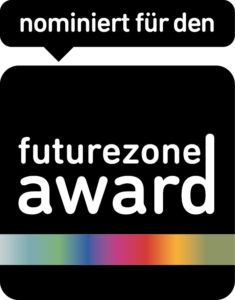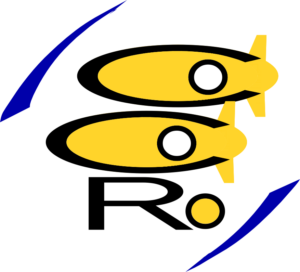Collective Cognitive Robots
The „Year of CoCoRo“ event lasted throughout the whole year 2015: Every week we presented a new video that was made during our recently ranked „excellent“ EU-ICT project CoCoRo (Collective Cognitive Robotics) which was then holding the largest autonomous underwater swarm in the world with 41 robots of 3 different kinds. You can follow TYOC on Facebook, in our youtube channel or the TYOC-playlist and on twitter.
This ambitious project aims at creating a swarm of interacting, cognitive, autonomous robots. We will develop a swarm of autonomous underwater vehicles (AUVs) that are able to interact with each other and which can balance tasks (interactions between/within swarms). These tasks are: ecological monitoring, searching, maintaining, exploring and harvesting resources in underwater habitats.
The swarm will maintain swarm integrity under conditions of dynamically changing environments and will therefore require robustness and flexibility. This will be achieved by letting the AUVs interact with each other and exchange information, resulting in a cognitive system that is aware of its environment, of local individual goals and threats and of global swarm-level goals and threats. Our consortium consists of both, biological and technical institutions and is therefore optimally qualified to achieve this goal. By a combination of locally acting and globally acting self-organizing mechanisms, information from the global level flows into the local level and influences the behaviour of individual AUVs. Such a cognitive- based scheme creates a very fast reaction of the whole collective system when optimizing the global performance. As shown by natural swimming fish swarms, such mechanisms are also flexible and scalable.
The usage of cognition-generating algorithms can even allow robotic swarms to mimic each other’s behaviour and to learn from each other adequate reactions to environmental changes. In addition, we plan to investigate the emergence of artificial collective pre-consciousness, which leads to self-identification and further improvement of collective performance. In this way we explore several general principles of swarm- level cognition and can assess their importance in real-world applications. This can be exploited for improving the robustness, flexibility and efficiency of other technical applications in the field of ICT.
Full Description
Concept and objectives
Cognition is not an artefact that evolved by accident in animals. Instead, the cognition observed in organisms in nature helps these organisms to cope with complex and dynamic environments. Also in “technical habitats”, networks of ICT applications are facing growing complexity and unpredictability.
By developing an embodied and distributed system of autonomous underwater vehicles (AUVs), we want to research the potential of cognition-generating software, which is supported by a suitable hardware concept. The reason for choosing an underwater scenario instead of an easier-to-use land scenario is that a system in this new environment faces new challenges that have not been met by robotic projects yet. The inability to easily access the system in situ demands a high degree of autonomy of the system, the complex and unpredictable environment demands great flexibility of the system and the three-dimensional mobility of the AUVs demands novel engineering principles and robot control approaches. For this purpose, collective cognitive capabilities derived from animals (e.g. social insect societies) will be used underwater for the first time.
These new bio-inspired algorithms will expand the current state-of-the-art in swarm intelligence and swarm cognition in real robotic swarms. These control algorithms will also be abstracted to a level that they can serve as basic building blocks also for other applications in ICT, economy and society. We plan to evaluate our cognitive swarm system similarly to how scientists evaluate the level of cognition in focal organisms. By performing sophisticated experiments (meta-cognition) we will compare our results to nature, evaluate our scientific progress and – potentially – cast new light on existing interpretations in the fields of biology, theology, meta-cognition, psychology, and philosophy.
The project CoCoRo is about:
- Generating small-size autonomous underwater vehicles that are able to organize themselves with local neighbours.
- Generating robust swarming motion principles that work also in natural (noisy), dynamic environments.
- Generating swarm-level cognition within such an underwater swarm.
- Comparing the achieved level of global cognition to biological reference organisms.
- Developing cognition-based mechanisms that afford long-term survivability of systems.
- Taking an interdisciplinary approach to addressing collective cognition and self-awareness issues.
- Developing novel autonomic systems capable of self-identification.
Figure 1: Our concept and its sources of inspiration; (a): A swarm of medusas, drifting in the current. The swarm is able to follow its prey (plankton) to different depths in day and night, thus being aware of time and environment; (b): A swarm of fish, being able to show sophisticated collective motion patterns in response to environmental conditions (e.g., escape behaviour when the swarm is being attacked); (c): Slime-mould amoebas organize themselves to coordinate their collective target-oriented behaviour; (d): Honeybee societies achieve the highest level of collective awareness; (e): Our envisioned system: One single AUV that can operate several hours autonomously in a depth of several hundred meters, being aware of its local environment. Several of these AUVs are joined to a swarm that collectively searches the seabed. The base-station on the surface is always informed about the situation on the ground via a chain of „relay“-AUVs. The base station provides global information, GPS, and can act as an energy reserve (or refilling station).
Scientific questions targeted in the project CoCoRo:
- Can collective cognition be generated as a distributed mechanism without centralized control?
- Is such a collective cognition capable to increase the efficiency of the collective and to increase the robustness of the collective?
- Can such a system of collective cognition be generated from scratch? (Artificial evolution or similar technologies?)
- Can complexity be built from (mathematical) building blocks? Do these building blocks deliver additional complexity „for free“?
- Can simple interacting agents support the emergence a common pre-consciousness; can it evolve from simple to complex?
- Can local interacting agents support the emergence of a global order parameter (in sense of synergy), which in turn enslaves all these local agents?
Figure 2: Mirror experiment with Collective Pre-Consciousness. Idea of the mirror experiment – swarm produces collective luminescent waves with a specific frequency, which is reflected from a mirror (by using light, EM or pressure waves






